I have this server.js code:
const bodyParser = require('body-parser');
const cors = require('cors');
const morgan = require('morgan');
var express = require('express')
, http = require('http')
, https = require('https')
, app = express();
app.use(morgan('combined'));
app.use(bodyParser.json());
app.use(cors());
http.createServer(app);
https.createServer({ }, app);
app.get('/', (req, res) => {
res.json({message: "Home"})
});
app.get('/test', (req, res) => {
res.json({message: "Testing..."})
});
app.post('/token', (req, res) => {
var clientId = req.body.client_id;
var clientSecret = req.body.client_secret;
if (clientId === 'admin' && clientSecret === 'admin') {
res.json({message: "Your token is 123456"});
}
else {
res.json({message: "Not allowed!"});
}
})
app.listen(process.env.PORT || 8081);
And this client.js code:
const http = require("http");
const querystring = require("querystring");
function getTestHome() {
const options = {
method: "GET",
}
const token_endpoint = "http://localhost:8081/";
const token_request = http.request(token_endpoint, options);
token_request.once("error", err => {throw err});
token_request.once("response",
(token_stream) =>
getFromStream(token_stream));
token_request.end();
}
function getTestToken() {
const parameters = {
"grant_type": "client_credentials",
"client_id": "admin",
"client_secret": "admin"
};
const post_data = querystring.stringify(parameters);
const options = {
headers: { 'Content-Type': 'application/x-www-form-urlencoded' },
method: "POST",
body: post_data
}
const token_endpoint = "http://localhost:8081/token";
const token_request = http.request(token_endpoint, options);
token_request.once("error", err => {throw err});
token_request.once("response",
(token_stream) =>
getFromStream(token_stream));
token_request.write(post_data);
token_request.end();
}
function getFromStream(stream) {
let body = "";
stream.on("data", piece => body += piece);
stream.on("end", () => console.log(body));
}
getTestHome(); //{"message":"Home"}
getTestToken(); //{"message":"Not allowed!"}
I'm trying to send requests to / (GET request with no parameters) and /token (POST request with body JSON data).
The GET request goes through fine and I get the
{"message":"Home"}
message.
However despite me sending the correct client_id and client_secret in the POST request, I get the
{"message":"Not allowed!"}
message back.
I tried using debugger on the server.js and I can see that the req.body.client_id and req.body_client_secret are undefined:
What am I doing wrong and how do I fix it?
The correct output would have been
{"message":"Home"}
{"message": "Your token is 123456"}
PS The POST request works fine in Postman:
EDIT:
I think I got it.
Adding
app.use(bodyParser.urlencoded({ extended: true })); // support encoded bodies
to server.js solved it.
But I'd like to know if there is a way to solve it in client.js only? In case I wouldn't have had access to the server code?


